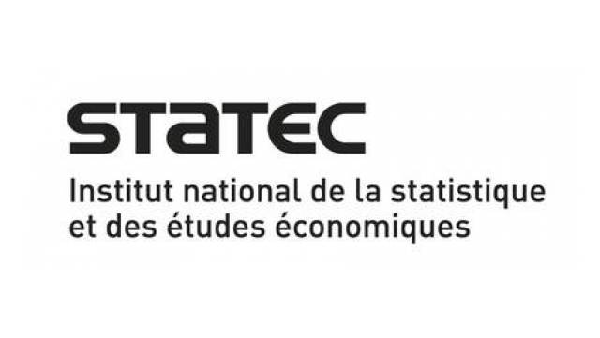
Under the tagline of "Brexit: Lëtz make it happen", Luxembourg's national statistical office, STATEC, estimates that up to the beginning of 2018, approximately 250 jobs would have been created in connection with Brexit.
More than 30 companies have already completed or confirmed their arrival, mainly in the fields of insurance and fund management. This is a relatively high number compared to other EU countries: 18 in Ireland, 15 in Germany and 10 in France, according to KPMG.
The Brexit vote in June 2016 has brought home to City operators the realisation that they are now set to lose the European passport, which allows all banking and financial institutions and management companies to operate throughout the European Union. This has propelled them to relocate some of their operations to financial marketplaces in the EU.
Luxembourg attracts companies – and jobs
Luxembourg seems to be an attractive option. Over 30 companies, most of them operating in insurance and fund management, have already confirmed their move to the Grand Duchy. This number is relatively high compared to other EU countries (18 to Ireland, 15 to Germany, 10 to France, and 9 to the Netherlands, according to the latest figures compiled by KPMG1). It remains to be seen how this will translate in terms of added value and employment.
Of the companies that have confirmed they will be moving to the Grand Duchy, very few have announced how many potential jobs this move will entail. Based on individual company figures, STATEC currently believes that approximately 250 jobs have already been created due to relocations. This is a conservative estimate, because most recent figures available do not go beyond January 2018 and some companies have only just set up (or stepped up) operations in Luxembourg because of Brexit. It should also be noted that these are direct jobs. At this stage, it is impossible to evaluate the indirect and induced effects.
Compared to the 14,000 net jobs created in the Luxembourg economy as a whole in 2017, these 250 jobs might seem quite modest. However, they are far from marginal when set against the 1,280 net jobs created in the financial sector alone last year.
British slowdown could weigh on Luxembourg exports
This good news on the employment front should not, however, obscure the fact that the prospect of Brexit seems to be weighing on economic performance in the United Kingdom, a major trade partner for Luxembourg.
Although the British economy is assuredly not in crisis, there are a few negative signs. Economic growth has slowed, due notably to slackening household consumption (penalised by the depreciation of sterling following the Brexit vote) and the drop in investment expenditure. Almost all European economies have seen their economic outlook revised significantly upward since early 2017 – but not the British economy. British GDP growth was 1.8% in 2017, compared to 2.4% for the euro zone, and is expected to be just 1.5% in 2018 and 1.2% in 2019 (compared to 2.3% and 2.0% respectively for the euro zone). While the British economy expanded more rapidly than the euro zone from 2012 to 2016, it is now lagging behind.
Favourable economic climate
Manufacturing output per working day in Luxembourg rose 2.5% in 2017. This figure has been revised upwards – the previous estimate indicated near stagnation – and is close to that of the euro zone (+2.9%). The general trajectory of industrial output is recovering in various regions across the world and seems more balanced.
In 2017, capital goods and metallurgy (including iron and steel) boosted Luxembourg industrial output. In contrast, rubber and plastic products weighed on results, even though here again, output started to trend upward over the second half of the year.
Over the first two months of 2018, output rose almost 6% over one year, mostly due to a base effect linked to low iron and steel output in early 2017. Manufacturers were extremely confident in the economic surveys up to April (latest data available), although this confidence fell back slightly in recent months, in line with euro-zone trends.
Consumption running smoothly
Private car registrations, a benchmark indicator to assess the pace of consumption, continued to trend upward in early 2018. These were up 7% over one year in the 1st quarter of 2018, rising 10% in April (compared to April 2017). Car sales in the euro zone are also trending favourably, with volumes rising almost 5% over one year in early 2018, at a pace similar to that recorded over 2017 as a whole.
Household consumption spending grew 2.6% in volume in 2017. This is set to further increase significantly in 2018, due notably to improvements in the labour market, population growth, robust household confidence and the effects of fiscal reform.
Insurance: a promising start to the year
In the 1st quarter of 2018, premiums collected by Luxembourg insurance companies rose 10% over one year. While unit-linked life insurance products boosted premiums collected in 2017, this time, non-life insurance products (+36%) and guaranteed return life insurance products (+37%) were more attractive.
According to the Commissariat aux Assurances, non-life insurance is starting to benefit from the initial effects of British companies relocating operations in the run-up to Brexit. Ten non-life insurance companies have chosen Luxembourg to set up operations following the referendum. Conventional life insurance products benefited from "the expansion of a significant activity in protection products".
In contrast, the downturn in the stock markets at the start of the year weighed on unit-linked life insurance premiums, which have fallen 8% over one year








